COVID-19 – Summary of UK Internet Traffic Over Past 4 Weeks
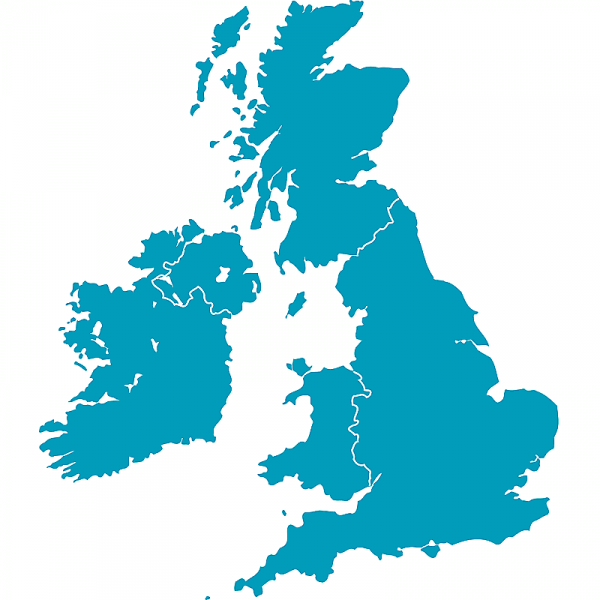
Some 4 weeks have now passed since the UK was put into lockdown on 23rd March, although many people had already started working from home and limiting their movements over the prior 2 weeks. As such it’s worth taking a quick look back to see how broadband ISP and mobile speeds, as well as general internet traffic, have changed.
We’re pleased to see that not a lot has changed over the past month, except the fact that key sections of the mainstream media appear to have finally ended their initially quite inaccurate reporting, which largely concerned the ability of UK broadband and mobile operators to cope with the rise in domestic demand from the Coronavirus crisis (i.e. more adults and children working or playing from home at the same time).
In the end it was all a bit of a storm in a teacup since both fixed line broadband and mobile network operators promptly adapted without any major problems (see here, here, here, here and here), which will come as no surprise to anybody who actually works in this industry.
Advertisement
Overall most of the performance changes that have been observed so far were generally fairly small, while consumer gripes continue to exist at around the same level as they did before the lockdown (excluding issues related to delayed installs or similar work, which follows the pause on non-essential engineering visits by many operators).
Interestingly traffic passing over the London Internet Exchange (LINX) has actually fallen from its late-March peak over the past couple of weeks (when looking at their primary LON1 and LON2 switches), which holds true even if we exclude a predictable lull in Easter Weekend traffic. We’re now very much settled into a new normal.
Some of the aforementioned fall will be down to the sunny weather (i.e. those with gardens are more likely to use them) and the fact that people will have now caught up on any software or games updates that were still pending at the start of the lockdown. Likewise some ISPs have probably further optimised their networks (CDN, caches etc.) to better suit how people are using them.
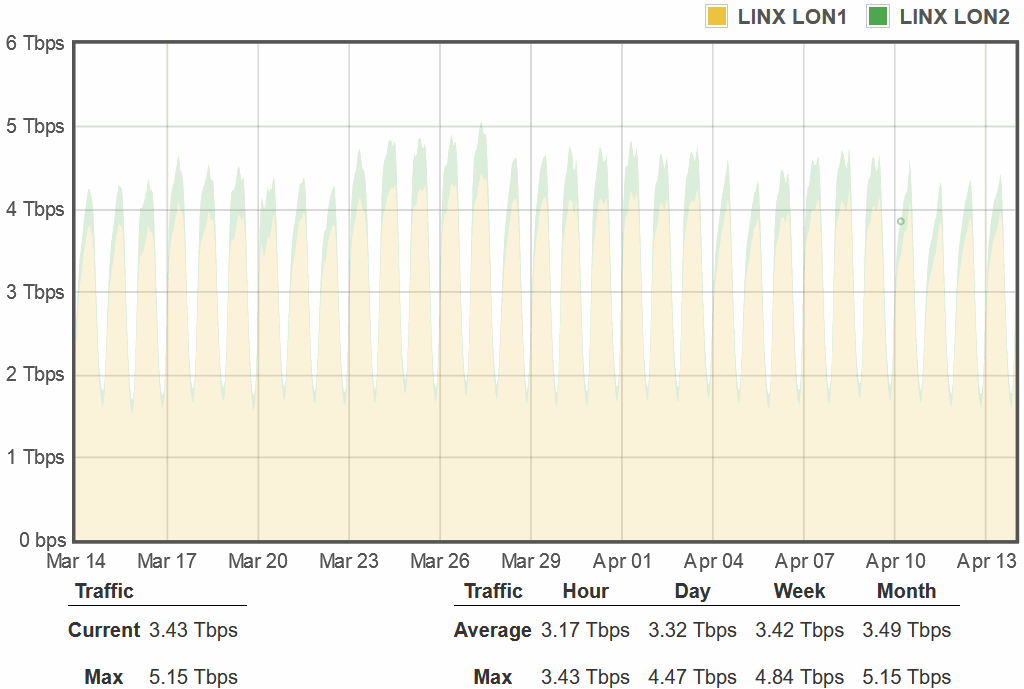
Advertisement
Meanwhile the latest data from internet speed testing giant Ookla (Speedtest.net – illustrations below), which currently only goes up to the very end of March 2020, suggests that COVID-19 has only had a small impact on consumer UK connection speeds. Otherwise the overall performance trend remains broadly upward over the past year (this is the normal trend as faster connections see greater coverage and take-up).
One unusual trend is the fall, since around January 2020, in upload speeds for mobile broadband, which doesn’t seem to have changed as a result of the COVID-19 lockdown in March 2020. But overall the variation seen is only small, albeit consistent for the past couple of months (could be due to an issue with Ookla itself as we see this on the global summary too).
Take note that the black line at the bottom represents latency (i.e. server response time), which is measured in milliseconds and thus a lower figure here generally means better / faster performance. Latency on mobile connections actually seems to be improving, while fixed lines have held fairly level for the past year.
UK Broadband Speeds (Year to end of March 2020)
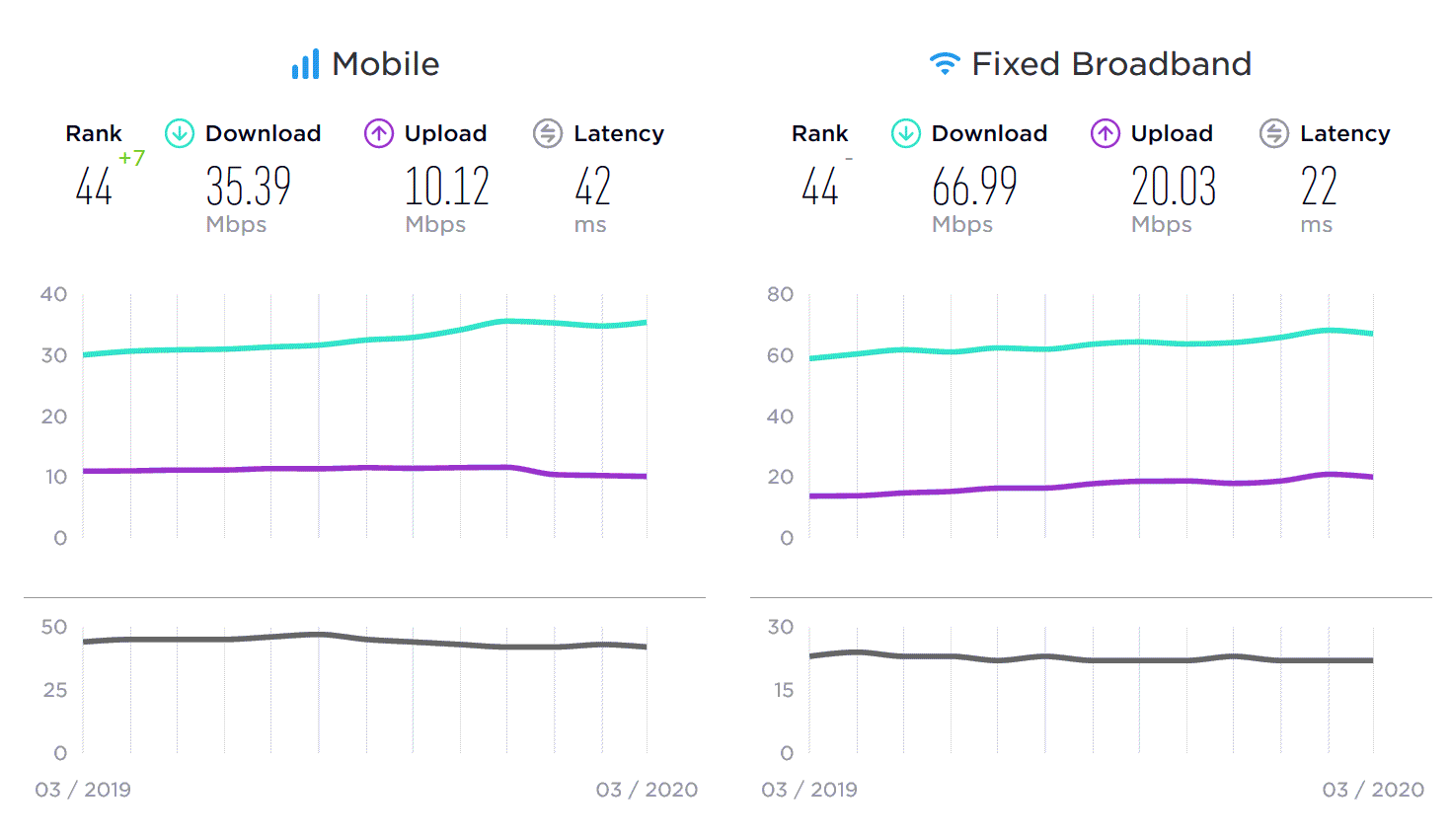
Advertisement
Mark is a professional technology writer, IT consultant and computer engineer from Dorset (England), he also founded ISPreview in 1999 and enjoys analysing the latest telecoms and broadband developments. Find me on X (Twitter), Mastodon, Facebook, BlueSky, Threads.net and Linkedin.
« 39 BT Engineers Assaulted by “Mindless Idiot” 5G Conspiracy Theorists UPDATE
Rootmetrics – EE and Vodafone Named Best in Wales for Mobile »







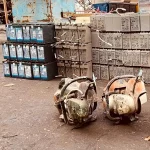
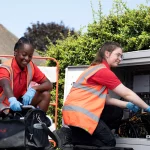

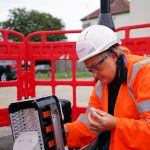












































It was clear at one point the mobile networks were struggling with voice calls after the prime ministers message. I had a family member call a bit after that message and we were cut-off within about 30 seconds and I could not get back through to their mobile from my mobile, just kept dropping the call even before dialling out or just complete silence, as they were sounding pretty desperate at the point it dropped it was distressing for me and them to be cut off and unable to reconnect. The only way I could call them again to give some reassurance was landline (well VoIP) to their POTs landline. I’d also been having dropped calls before this point, but usually would reconnect on re-dialling. Now that things have settled down calls are reliable again. However it does show that any sort of city or country wide emergency the mobile phone system can’t be relied upon for basic communication, something that people should be aware of given how many are forgoing landlines as we move towards FTTP and analogue telephone switch off.
We’re obviously more focused on the data / internet connectivity side, although there have indeed been cases where mobile calling activity can overload localised parts of a mobile network (this will vary from place to place).
Such incidents most often occur in the immediate aftermath of a major event, such as a terrorist attack in a big city. The batch processing of text messages can sometimes also get clogged up / delayed.
If there is a major incident like a terrorist attack the mobile networks can be switched off for all but essential users. This happened in London some years ago.
Very good point there TheFacts, I’d forgotten about that one.
Only some networks were asked to implement ACCOLC to improve access for emergency services on 7/7, but due to the way ACCOLC works it wasn’t helpful. Many of the emergency services’s staff numbers either hadn’t been registered for ACCOLC, or due to the amount of congestion (calls coming in to the area) they couldn’t dial out anyway (I believe ACCOLC only limits who can make outgoing calls). ACCOLC was implemented in the vicinity of the Aldgate Tube from about 10am to early afternoon.
ACCOLC was later replaced with the improved MTPAS.
@TheFacts, @Mark Jackson. Yes of course the emphasis on the report here is data and has been in the media generally. We all agree there as been no breakdown in the Internet in the UK despite the news reporting doom and gloom but there have been issues with related infrastructure. The fact the mobile networks can be turned off in an emergency except for non-essential people is the elephant in the room, i.e. they can’t really cope with anything out of the ordinary. As more landlines vanish over the coming years, not having a reliable mobile network for the basic service of calls could be a real problem. What about VoIP systems that many will turn to in order to emulate a ‘landline’? Is OFCOM governing anything here with mobile operators or VoIP suppliers to ensure their systems are robust and have enough capacity to cope with any sort of sudden surge in demand as they come to replace the humble landline?
Having a very distressed relative cut-off and not being able to call them back was upsetting for both parties involved and I’m sure that was played out in many homes up and down the UK.
I think overall stats can hide the effect on those on the edge of the technology’s range.
The signal we get from both O2 and Vodafone has gone from poor to dreadful in peak hours.
I also know a few people who are struggling to work from home because the FTTC has deteriorated during working hours.
I think that’s the case even during normal times. Such is the nature of looking at trends and averages over time. But it’s not so much a case of hiding the effect, as it is simply showing that any effect is not particularly distinguishable on a national scale from the normal.
People will always be suffering from localised problems and faults. COVID-19 hasn’t stopped problems occurring, but it might have made them more difficult and slower to resolve (hard to tell at this stage since we don’t have any statistics from the maintenance/repair/upgrade side).